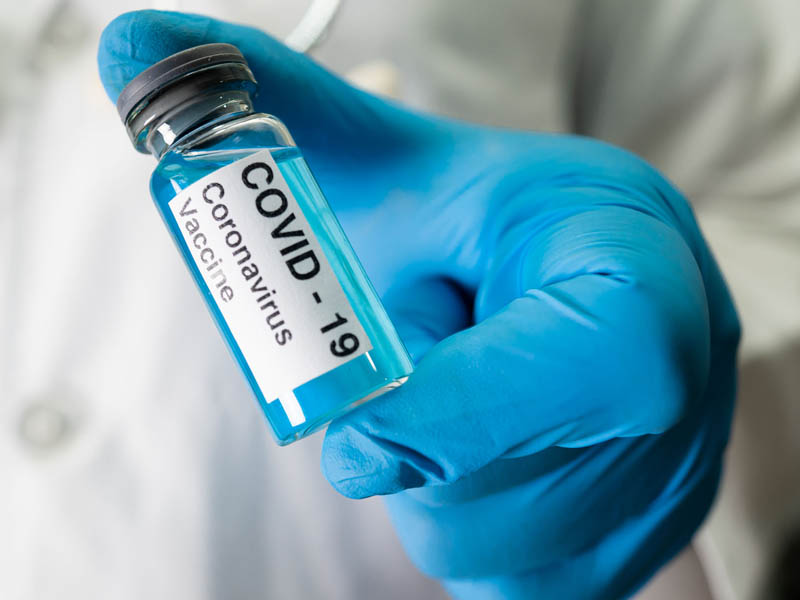Study: Primary Care Is Optimal Vaccine Delivery Channel
Primary Care Practices Are ‘Crucial’ to COVID-19 Vaccine Process
February 9, 2021, 3:32 pm News Staff — Primary care physicians provide the majority of vaccinations in the United States and therefore are uniquely well positioned to lead the push for COVID-19 immunization. That’s the urgent conclusion of a preprint study from the Robert Graham Center for Policy Studies in Family Medicine and Primary Care slated for publication as part of the Annals of Family Medicine COVID-19 Collection.

“Surveys have shown that the most trusted source of information on the COVID-19 and other vaccines is a patient’s own doctor or health care provider,” the authors write. “But no studies, to our knowledge, have quantified where patients have historically received their vaccines.”
The Graham Center has filled that gap with “Primary Care’s Historic Role in Vaccination and Potential Role in COVID-19 Immunization Programs,” using 2017 Medicare Part B fee-for-service data and the 2013-17 Medical Expenditure Panel Survey to examine vaccinations at the service, physician and visit levels.
The authors say the data verify that primary care physicians “played a crucial role” in U.S. vaccinations during the period under review.
In 2017 Medicare Part B fee-for-service data, primary care physicians provided the largest share of services for vaccinations: 46%. (Close behind, at 45%, were “mass immunizers”: drugstore and grocery chains and community pharmacies. Nurse practitioners and physician assistants made up the rest.) States including Louisiana, Pennsylvania and Massachusetts contained “clusters of counties that had over 50% of vaccinations provided by PCPs,” the study adds.
Meanwhile, the MEPS data “showed that primary care physicians provided most clinical visits for vaccination (54% of all visits).”
Taken together, the study says, these numbers mean that “primary care practices may be a crucial element of vaccine counseling and delivery in the upcoming COVID-19 recovery and immunization efforts in the United States.”
Story Highlights
The importance of the “counseling” part of that diagnosis is hard to overstate. Though vaccine distribution in many communities has been slow, patient hesitancy is its own high barrier to pandemic recovery.
“Even if the United States is able to appropriately deliver the COVID-19 vaccine to all communities, vaccine hesitancy may slow herd immunity,” the authors warn, citing recent Kaiser Family Foundation opinion monitoring. In that December survey, as doses were beginning to roll out, more than a quarter of U.S. adults expressed reluctance to receive either COVID-19 vaccine. “This proportion is much higher in certain populations and geographies,” the authors write. “Without appropriate counseling about the vaccine, the potential for recovery is hampered.”
“Whether primary care physicians provide the vaccine or only provide immunization counseling, their role may help assure successful delivery of the COVID-19 vaccines to communities across the nation, including rural and remote communities,” the authors continue. “In addition to physically administering vaccinations, PCPs can provide clinical and personal support to enable patients to understand their current COVID-19 immunologic status, how that may impact their vaccine decisions, and to counter vaccine hesitancy and misinformation.”
Primary care physicians also can provide the vaccine itself, and the study’s use of Medicare data shows an efficient channel awaiting higher volume.
“Manufactures already deliver vaccines, and Medicare has individual provider and practice billing information for primary care practices that provide vaccines,” the authors write. “Therefore, a distribution list is ready-made. Using the current vaccine delivery in primary care may greatly improve COVID-19 vaccine distribution.”
As the study’s corresponding author and Graham Center Director Jack Westfall, M.D. M.P.H., told Fierce Healthcare in a Feb. 2 story about the study, “Bottom line, if we engage and activate the ready-made primary care practices, we can accelerate COVID-19 vaccine distribution and reach herd immunity through immunization sooner.
“Vaccine manufacturers already know who orders vaccines and could deliver vaccines to those same primary care offices. Medicare knows who provides COVID-19 to Medicare beneficiaries and actually knows how many beneficiaries get their vaccines from these practices. They could ship out that number of vaccines to each primary care practice for their seniors. Or do so in waves.”
The Graham Center’s study lends further weight to the Academy’s advocacy efforts to ensure that community primary care physicians and their practices are at the heart of vaccination strategies, able to deliver doses to their patients and be vaccinated themselves.
“Failure to meaningfully incorporate primary care into distribution and education efforts will jeopardize the ultimate success of vaccination strategies,” the Academy recently told HHS and the National Governors Association.
Repeating this call, AAFP CEO and EVP Shawn Martin wrote in a Feb. 5 Leader Voices blog post, “If we are serious about widespread vaccination of the population by this summer, we need to quickly alter course and bring trusted and proven resources to the forefront of our effort.”
Live White House Vaccine ‘Fireside Chat’
At 7 p.m. CT on Feb. 10, White House vaccinations coordinator Bechara Choucair, M.D., is set to join AAFP President Ada Stewart, M.D., of Columbia, S.C., and Julie Wood, M.D., M.P.H., the Academy’s senior vice president for research, science and health of the public, for a discussion of President Joe Biden’s COVID-19 vaccine plan. The session also will be recorded for viewing on demand after the live event.
Members who participate in the Virtual Town Hall can earn 1 AAFP Prescribed CME credit.